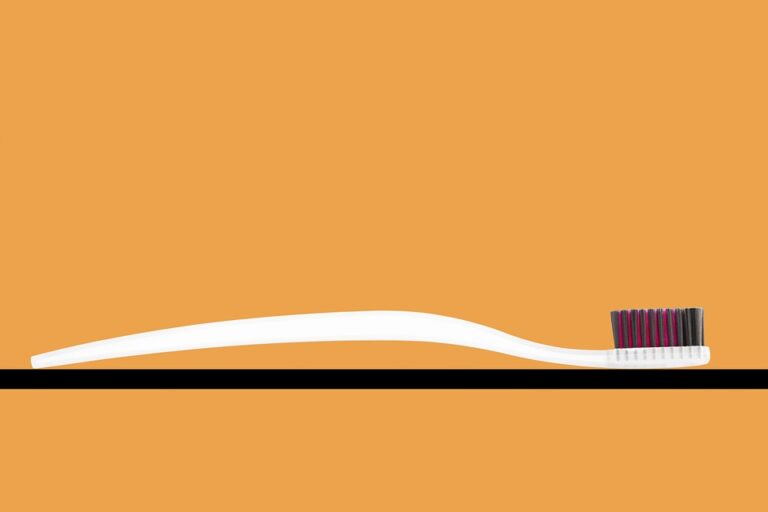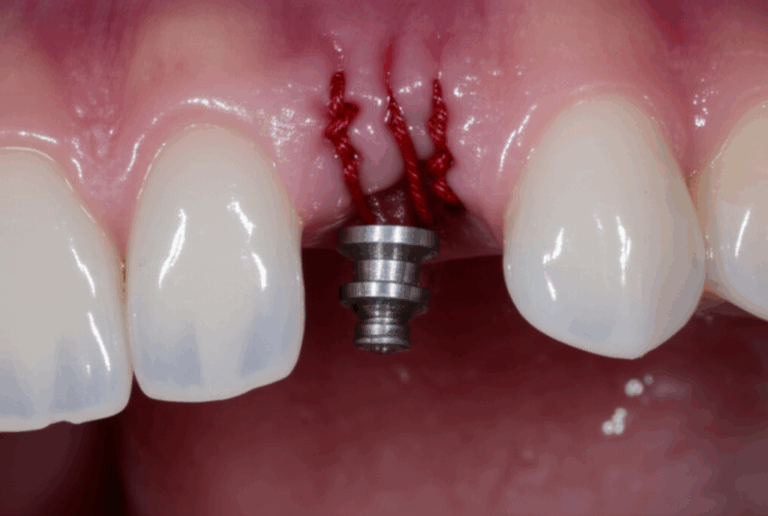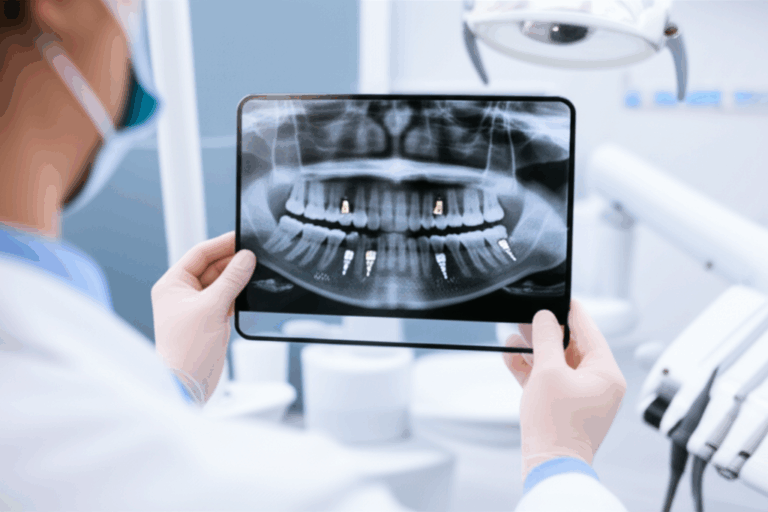
Can Dental Problems Cause Seizures?
It’s a scary question, like from a TV show: can a simple toothache really cause something awful like a seizure? For a long time, I would of said no. But when a health problem hit my family, I had to look for answers in weird places. My journey made me learn about the tricky link between our mouths and our brains. What I found was both scary and made me feel strong. This article is the story of that. It’s for anyone who had brain problems with no reason, or for anyone who just wants to know the big, often missed link between your mouth health and your whole body’s health. I’m sharing what I learned, not like a doctor, but like someone who had to put all the clues together myself.
It all start with my younger brother, Mark. He was in his late twenties, real healthy and full of life. Then one afternoon, he had a seizure. It came from nowhere, with no warning. You can guess how scared we all was. We rushed him to the hospital, and they did a bunch of tests: EEGs, MRIs, blood work—all of it.
The doctors was very careful, but the results was all normal, which was frustrating. They couldn’t find a tumor, a brain injury, or any of the usual things that cause seizures in adults. They said for now it was epilepsy and gave him anti-seizure medicine. The medicine helped, but it didn’t feel like a real answer. It felt like putting a bandage on a cut we couldn’t find.
For months, we all felt worried. The “why” question bothered us. Mark was good about taking his medicine, but we all worried what was really causing it. Around this time, he started complaining about a pain in his jaw that wouldn’t go away. He had a bad wisdom tooth for years that he didn’t get taken care of because, like a lot of us, he don’t like the dentist. He said the pain was just from stress. But the pain got worse, and he started feeling sick all over—a little fever, tired, things like that.
It was my mom who finally put it together. She read some article online about how swelling in the body can cause weird problems. “Mark,” she said one night, “I know this sounds nuts, but when’s the last time you went to a dentist?” That question started us on a path that changed how we thought about health.
Finding the Link: How Can a Tooth Problem Hurt the Brain?
At first, I didn’t believe it. How could a bad tooth cause something in your brain like a seizure? It seemed like a big jump. But when I started reading medical books and talked to doctors, I saw the link isn’t as crazy as it sounds. The body is all one big system, not a bunch of separate parts. What happens in your mouth don’t just stay in your mouth.
I learned there’s a few ways in the body that a bad tooth problem could, in rare situations, help cause or set off a seizure.
How Infection Travels: From Your Gums to Your Blood
Think of your gums like guards between your mouth and your body. When they’re healthy, they make a tight seal around your teeth, keeping bad germs out of your blood.
But when you got a bad dental problem—like a deep cavity that turns into an abscess or bad gum disease (periodontitis)—that wall is broke. A dental abscess is like a pocket of pus and germs. If you don’t get it treated, that wall can break.
When that happen, lots of germs can get into your blood. This is called bacteremia. I think of it like a leaky pipe in your house. A little drip don’t seem like a big deal, but if you don’t fix it, it can get in the walls, rot the house, and cause huge damage everywhere.
Once these germs from your mouth get in your blood, they can go anywhere, even the brain. In very rare times, this can cause a brain abscess or meningitis—bad infections of the brain or the layers around it, which are known to cause seizures. This is the worst thing that can happen, but it shows how a small mouth infection can become a really bad problem for your whole body.
Swelling: When Your Body Fights Too Hard
Even if you dont have an infection traveling around, long-term tooth problems make your body a little bit swollen all the time. Your body sees the germs in your bad gums or infected tooth as a threat that won’t go away, so your body’s defense system is always “on,” trying to fight it.
This long-term swelling don’t just stay in your mouth. The chemicals that cause swelling (called cytokines) made in your gums travel all over your body, making your whole body more swollen.
Why is this a big deal for the brain? The brain is very sensitive to swelling. Lots of swelling can bother brain tissue and lower the point at which a seizure can happen. For a person who is already more likely to have seizures (maybe because of their family or some small problem nobody found), this extra stress from the swelling could be the thing that pushes them over and makes them have one. It’s like adding gas to a fire that’s already burning slow.
The Nerve Link: When Tooth Pain Sends a Bad Signal
This was a big “wow” moment for me. The face and mouth are full of nerves, all part of a huge network. The biggest one is the trigeminal nerve, a giant nerve with three parts that let you feel your face, sinuses, and—yep—your teeth.
A stuck wisdom tooth pressing on a nerve or the terrible pain from a deep infection sends a really strong signal to the trigeminal nerve. This isn’t just normal pain; it’s a very strong, raw nerve signal.
For some people, this strong and constant pain signal can be so much that it gets mixed up with other electrical signals in the brain. This weird electrical signal can, in theory, spread and turn into a seizure. It’s kinda like a power surge in your house. A broken toaster (the bad tooth) sends a giant zap of power down the wire (the nerve), which makes the main power box (the brain) shut off.
Fever Can Be a Trigger, Specially in Kids
Even though Mark was an adult, this is really important for kids. A bad tooth infection can easily cause a high fever. High fevers are a very common reason for febrile seizures in young children.
Parents are told to check for ear infections or the flu when their kid has a fever, but a hidden tooth infection can be just as strong. If a child has a seizure with a fever and there’s no clear reason, a good tooth check-up is a must do.
Which Tooth Problems Are the Most Worrisome?
After I learned the “how,” I asked “what?” What tooth problems are the biggest risk? Turns out not all problems are the same. We’re not talking about a little cavity on the top of your tooth. The problems that can cause trouble for the whole body are usually bad and have a lot of infection or swelling.
Bad Cavities and Abscesses
This is the main one. When a cavity isn’t treated, it eats through the hard layers of the tooth until it gets to the soft pulp inside. The pulp has the tooth’s nerve and blood vessels. Once germs get to the pulp, they cause an infection.
The body’s tries to fight it by sending white blood cells, which makes pus. An abscess is the pocket of pus that grows at the root of the tooth or in the gums next to it. This is a ticking time bomb. It’s a spot full of infection that can cause bad pain, swelling, and fever, and it’s the tooth problem most likely to leak germs into your blood.
Bad Gum Disease (Periodontitis)
Gingivitis is the first step of gum disease, just some swelling in the gums. But if you let it go, it becomes periodontitis. At this point, the swelling goes deeper, hurting the tissue and bone that hold your teeth. This makes deep pockets between the gums and teeth that become pools for germs.
With periodontitis, your gums are like a long-term open cut, giving germs and swelling stuff a way to get into your blood all the time. It’s not as sudden as a bursting abscess but it puts a long-term strain on your whole body.
Stuck Wisdom Teeth
This was Mark’s problem. Wisdom teeth often don’t have space to come out right, so they get “stuck.” They can grow in sideways, get stuck under the gum, or push on other teeth.
A stuck wisdom tooth is very hard to clean. This makes it a perfect place for infections and abscesses to grow, where you can’t even see them. Also, because they are at the back of your jaw, they can push right on big nerves, causing the kind of bad pain that could bother the nervous system.
My Search for Answers: Dealing with Doctors and Dentists
With this new info, we got Mark to see a dentist right away. The dentist looked at his X-ray and saw what we were scared of. The wisdom tooth was stuck and also had a bad, deep infection.
Here’s where things got tricky: the doctors weren’t talking to each other. Mark’s brain doctor was focused on his brain. His dentist was focused on his tooth. At first, neither one of them made the link.
This was a big lesson for me. We, the patients, have to be the ones who connect our different doctors.
We had to speak up. We made sure Mark’s dentist knew he just had a seizure. And we called his brain doctor’s office to tell them about the bad tooth infection they found. At first, the nurse at the doctor’s office seemed to brush it off, but when we explained the possible links with infection and swelling, she said she would put it in his file.
The dentist set up a surgery to take the tooth out and drain the infection right away. The surgery was tough, but Mark felt better almost right after. Not just the tooth pain, but the sick feeling—the tiredness and low fever—started to go away in a few days.
And then, the most amazing thing happened. With his brain doctor’s help, who was now curious about this, Mark slowly stopped taking his seizure medicine. He hasn’t had a seizure since.
What Modern Dentistry Can Do to Prevent and Treat
Mark’s story had a happy ending, but it also showed how important good dental care is. This isn’t just about brushing; it’s about using new technology to stop these bad problems from ever happening.
After his tooth was pulled, Mark needed a crown on the tooth next to it, which was hurt by the infection. His experience showed me how much better dental work has gotten. His dentist said instead of using the old gooey molds, they would use a 3D scanner.
This info would be sent to a digital dental lab, where a perfect-fitting crown could be made on a computer by a machine. This is important because a perfect fit means no small gaps for germs to get in and cause more problems. He said for a tooth you can see like a molar, a fancy emax dental lab could make a crown from a ceramic that is super strong and you can’t tell the difference from a real tooth.
Learning about the technology, from the scan to the final crown made by a special lab like an arch dental lab, made me see that modern dentistry is about building things as much as it is about health. Getting good teeth information from a dentist you trust helps you make choices that protect not just your smile, but your whole body.
What I Learned: Simple Steps to Protect Your Brain Health
This whole thing was a wake-up call. It taught me that we have to be in charge of our own health and look at the whole picture. Here are the simple things I do now:
Don’t Ignore the Signs
Listen to your body. Tooth pain isn’t normal. It’s a sign something’s wrong. Don’t just try to be tough.
- Pain or sensitivity in a tooth that dont go away
- Swollen, red, or bleeding gums
- Pain when you chew
- A little bump like a pimple on your gums (a sign of an abscess)
- Bad breath that won’t go away or a bad taste in your mouth
- Swelling in your jaw or face
- A small fever or just feeling sick with no other reason
The Importance of Regular Dental Care
Stopping a problem before it starts is the best medicine, especially here.
- Regular Check-ups: See your dentist at least once a year, even if nothing hurt. X-rays can find problems like deep cavities or stuck teeth before you feel them.
- Professional Cleanings: A hygienist can get rid of hard plaque (tartar) that you can’t, which is a big cause of gum disease.
- Be Honest: Tell your dentist everything—not just about your teeth, but about your health, any medicine you take, and any new problems you have, even if they don’t seem related.
Talk to Your Health Team
If you have a brain condition like epilepsy, make sure to tell your dentist. And just as important, if you get a bad tooth problem, tell your family doctor or brain doctor. Don’t just think they’ll connect the dots. You’re the boss of your own health, and your doctors are your helpers. It’s your job to make sure they’re all on the same page.
A Warning: Two Things Happening Together Don’t Mean One Caused the Other
Now, I have to be really clear about this. This is very important so you can trust me and so I’m being responsible.
Tooth problems are NOT a common cause of seizures.
Most seizures are caused by epilepsy, family genes, head injuries, strokes, or other main brain problems. You must always get checked out by a real medical doctor first.
But, what my family’s story shows is that in some rare cases, especially when a reason is hard to find, a bad, untreated tooth infection can be a strong trigger or a helping factor. Think of it as one piece of a big puzzle. For Mark, we think the infection was the last thing that pushed his body too far. Getting rid of it gave his body the break it needed to get back to normal.
Please don’t read this and think your fillings are going to give you a seizure. That’s not what I’m saying. The message is to get rid of big sources of infection and swelling from your body, because they can have big and surprise effects.
My Final Thoughts: Your Mouth Is the Door to Your Body
My brother’s journey taught me a huge lesson. It taught me that the old idea of the mouth being separate from the body is not just old, it’s dangerous. Your mouth’s health is a direct look at, and has a big effect on, your total health.
Looking back, I see how easy it was to think a “tooth problem” was just a small thing. But I’ll never make that mistake again. I now see my regular dentist appointments not as a pain, but as a key part of my health care, just as important as a check-up with my regular doctor or eye doctor.
If you learn one thing from my story, let it be this: listen to your body’s small warnings before they become big problems. A tooth that keeps hurting or sore gums could be more than just a local problem. By taking your mouth health serious, you’re not just saving your teeth—you might be saving your whole body in ways you never thought of.








